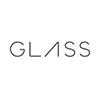
Casinos Are Not Rolling the Dice about Google Glass
- By Ginger Hill
- Jun 10, 2013

As Google gallops on with their operation Project Glass, casinos are already in an uproar about Google Glass.
This ubiquitous computer, much like a smartphone only in a hands-free format, can interact directly with the Internet by using voice commands. Attached to eyeglass frames, this tiny device has the ability to take photos, record 720p HD video, display apps and even respond to motion commands, such as activating when the wearer tilts their head upwards. There is also a touchpad feature on the side, allowing the wearer to swipe through a screen-displayed, timeline-like interface.
With all this head tilting, voice commanding and swiping going on, it’s no wonder that casinos in New Jersey and Nevada have already forbidden gamblers from wearing Google Glass, siting the obvious reason that the device could be used to cheat.
The New Jersey Division of Gaming Enforcement issued an advisory to the casino industry saying that “if these eyeglasses were worn during a poker game, they could be used to broadcast a patron’s hand to a confederate or otherwise used in a collusive manner.” The agency issued a directive to all 12 casinos in Atlantic City to prohibit casino patrons from using Google Glass.
And, following suit is Las Vegas.
Caesar’s has banned Google Glass from gambling areas and showrooms in all of their nation-wide casinos. “We’ve taken the action because gaming regulations across the nation ban the use of computers or recording devices while gambling,” said a spokesman for Caesar’s.
In addition to Caesar’s, MGM Grand has ordered their security workers to have people remove their specs before they start to gamble, especially if they suspect Google Glass wears are secretly taking photos or videos.
So, readers, what are your thoughts regarding Google Glass in casinos?
Do you think casinos nation-wide should adopt the same policies and procedures as the New Jersey Division of Gaming Enforcement, Caesar’s and MGM Grand?
Or, do you think Google Glass policies and procedures should be more lax or harsh than what is currently in place?
Sources:
http://consumerist.com/2013/06/06/add-casinos-to-the-list-of-places-you-cant-wear-google-glass/
http://www.pressofatlanticcity.com/news/ap/new_jersey/casinos-ban-gamblers-from-using-google-glass/article_54b8ee82-3643-5c93-8446-c5c4b2def652.html
About the Author
Ginger Hill is Group Social Media Manager.